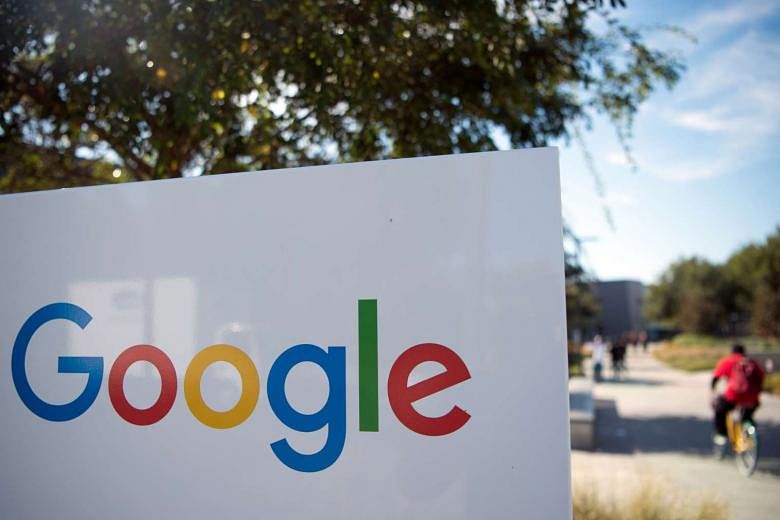SAN FRANCISCO (BLOOMBERG) - Google's advertising crisis went global after some of the biggest marketers including AT&T and Johnson & Johnson halted spending on YouTube and the internet company's display network, citing concern their ads would run alongside offensive videos.
The controversy erupted last week after the London-based Times newspaper reported that some ads were running with YouTube videos that promoted terrorism or anti-Semitism. The UK government and the Guardian newspaper took down ads from the video site and Havas, the world's sixth-largest advertising and marketing company, pulled its UK clients' ads from Google's display ad network and YouTube.
On Wednesday (March 22), the boycott spread across the Atlantic as US companies that are among the heaviest ad spenders pulled back, potentially costing Google and YouTube hundreds of millions of dollars in lost business.
AT&T and Verizon Communications, the largest US wireless carriers, said they had stopped non-search advertising spending with Google. Johnson & Johnson, the world's biggest health-care company, paused all YouTube advertising globally.
"We are deeply concerned that our ads may have appeared alongside YouTube content promoting terrorism and hate," a spokeswoman for AT&T said in a statement on Wednesday. "Until Google can ensure this won't happen again, we are removing our ads from Google's non-search platforms."
To shield its brand, Verizon took the same action. It's also started an investigation, Sanette Chao, a Verizon spokeswoman, said in a statement.
Search represents the lion's share of Google's advertising revenue, which totaled US$79.4 billion last year. However, large advertisers such as AT&T tend to spend more heavily across Google's video and display advertising network. AT&T is the fourth-largest advertiser in the US, spending US$941.96 million in 2016, according to Kantar Media, and Verizon is No. 3.
Google's network business, which serves display ads on other websites, generated US$4.4 billion in fourth-quarter revenue, about 20 per cent of the company's total ad sales. While YouTube revenue isn't reported separately, analysts estimate the video site brings in billions of dollars each year, and say it's among Google's fastest-growing businesses.
"American advertisers making statements will cause American investors to pay infinitely more attention to an issue that is already gripping much of the industry," said Brian Wieser, analyst at Pivotal Research Group, which downgraded Google parent Alphabet's's stock on Monday over the issue.
Google tried to head off the backlash this week, implementing new tools and policies. But many advertisers were waiting to see further details or results, before placing ads again.
Sainsbury's, the British Broadcasting Corp, Toyota Motor, Volkswagen and Havas each said Wednesday that their decision to pull ads from YouTube hasn't changed following Google's announcements.
GlaxoSmithKline Plc, one of the biggest drug makers, joined the boycott on Wednesday.
"The placement of our brands next to extremist content is completely unacceptable to us and we have raised our concerns directly with Google," the company said. "We are encouraged by Google's steps over the past few days."
A representative for Google declined to comment on individual customers.
"As announced, we've begun an extensive review of our advertising policies and have made a public commitment to put in place changes that give brands more control over where their ads appear," the representative said. "We're also raising the bar for our ads policies to further safeguard our advertisers' brands."

